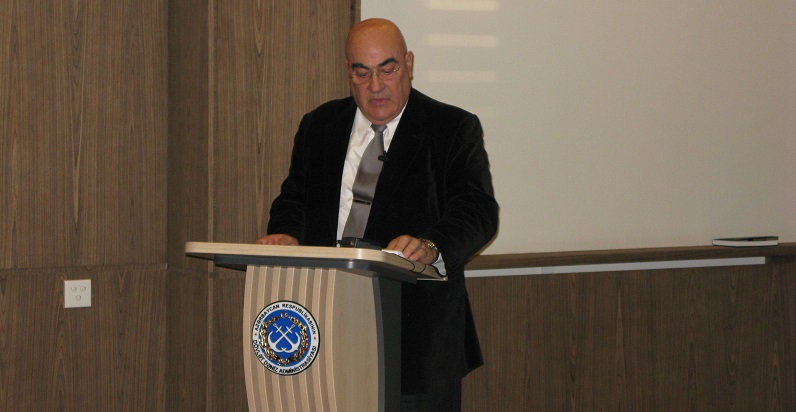-
23 September 2014
Category : Interview
“Azerbaijan is a country that is making a significant effort in maritime legislation”
Interview with Fernando Collado, Resident Adviser of the "Improving maritime safety and protection of the marine environment" project being led by the FIIAPP in Azerbaijan.

Azerbaijan, which controls 9,500 ships and manages 35 million tonnes of marine traffic, is currently in full swing with the renovation of its maritime legislation system. This country has already signed 26 of the 64 treaties established by the International Maritime Organization, but that doesn’t mean its legislation is operating under the international framework. There is an intermediate step between this declaration of intent and its implementation: adaptation of the legislative system it inherited from the former Soviet Union. The European Commission (EC) has joined this effort of Azerbaijan by financing a project managed by the FIIAPP which aims to improve the country’s maritime safety and protect the marine environment. We spoke to the FIIAPP expert sent to coordinate the project on the ground, Fernando Collado. We immerse ourselves in the Azeri coasts to understand this work.
Why does Azerbaijan need to pursue this project?
The goal is to increase maritime traffic, and this makes it necessary to adapt its legislation to these standards. Here the maritime administration is very young (2006), but, despite this, it has 26 signed International Maritime Organization (IMO) conventions, putting it at the level of Brazil and Argentina, and, since we’re talking about the European framework, it has more than even Austria. Azerbaijan is a country that is making a significant effort in maritime legislation. We are here to help them develop all of this legislation that they need so that all of these conventions they’ve signed are reflected in their own national legislation with tools to enable them to control emissions and spills or impose penalties, for example. With the entry of Poland, Hungary and other countries into the EU, the European Union discovered that twinning projects were a very good tool for collaboration, especially at the legislative level. What this project does is to amend the existing legislation and generate new legislation based on the criteria of the legal framework of the European Union.
Does it also have a preventive aspect for the population?
Yes. In what is the equivalent of the Spanish Official State Gazette here, we’ve already published the Ports Act, approved in June of this year, and, with respect to the Merchant Marine (marine traffic), we have this ready and we’re working on the local equivalent of Spain’s Royal Decrees, Regulations, Ministerial Orders, etc. Although, until this is published in their Official State Gazette, they will not have a powerful tool for controlling spills, polluting emissions, inappropriate conduct, etc. Moreover, if they don’t do anything else, it will remain somewhat toothless. In other words, we’re going to have all the legislation to be able to do things, but there won’t be an administrative enforcement part. We’re going to have the tools to require people to do things a certain way, but then there won’t be a way to penalize those that don’t comply. As soon as this legislation exists, this will translate into a situation where those who pollute will have to pay and will be penalized, and this will be reflected in the cleanliness of the beaches and of the water. It must be remembered that petroleum facilities and traffic are absolutely compatible with citizen enjoyment of the coasts.
How are the waters of Azerbaijan?
Curiously, there are zones that are very clean despite being in ports used exclusively for crude oil traffic, while there are other zones that are not, where you see the pollution perfectly. There is no absolute guarantee that all the beaches one might want to visit will be completely clean.
What has the Ports Act meant?
It must be remembered that here the legislation in place was from the former Soviet Union. When this country became autonomous, independent, what was left was a sort of patchwork. They had a maritime code, but this didn’t reflect all the possible situations of modern, global traffic in coordination with the entire international community. For this reason, starting in 2006, when this Maritime Administration was created, they started to enter into all these IMO conventions and to take on the commitment to place the country on the forefront at the legislative level.
Azerbaijan is a major exporter of crude oil. Does this also influence its interest in increasing its maritime traffic?
Yes, the port they’re building now, with the size of the port of Barcelona, can become an extremely important port in the area. The one they have now, comparable to Gijón’s, is very old. This initiative demonstrates Azerbaijan’s interest in modernizing and doing things within the international framework.
The views and opinions expressed in this blog are the sole responsibility of the person who write them.






